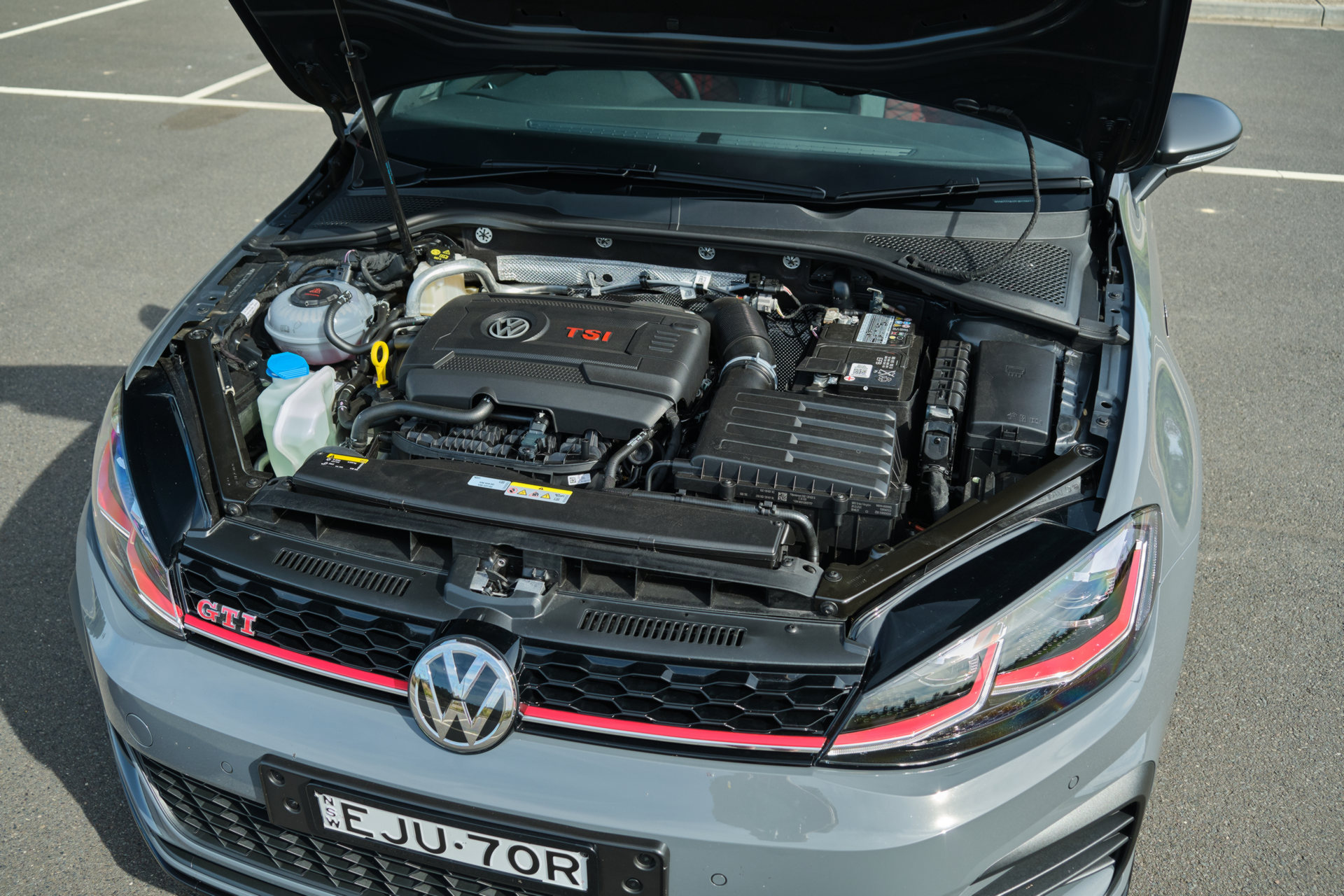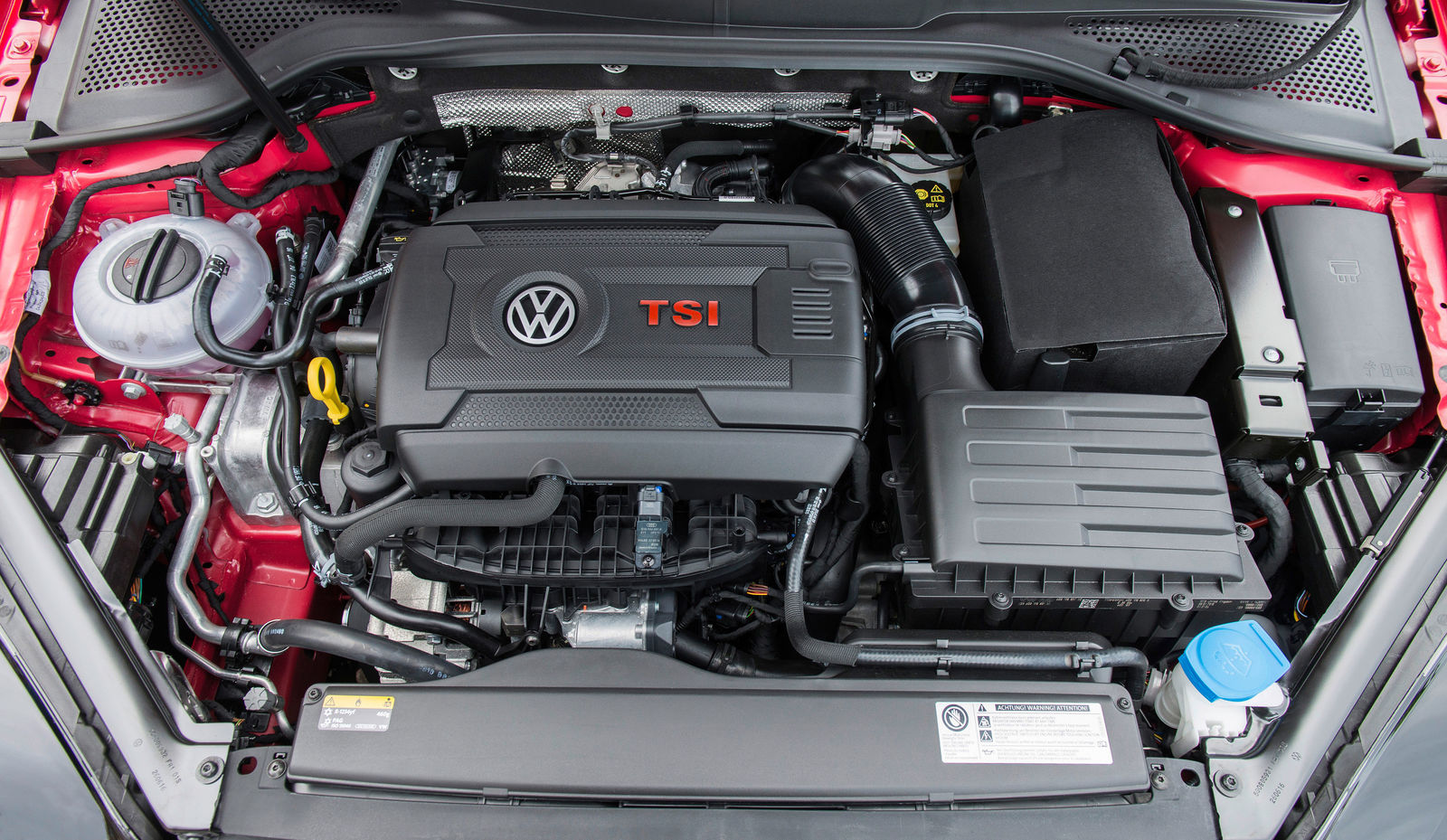Why the Golf 7 GTI Engine Stands Out in the World of Hot Hatches
Your Guide to the Golf 7 GTI Engine: Reliability and Upgrades
The Golf 7 GTI, equipped with its 2.0-liter turbocharged inline-four engine, represents a balance of efficiency and reliability that attract lovers and daily chauffeurs alike. Understanding the aspects that add to its dependability, along with potential concerns and their services, is critical for maximizing the driving experience. Moreover, exploring numerous performance upgrades can considerably enhance both power and efficiency. The inquiry continues to be: what details upgrades can change your GTI right into an absolutely extraordinary car while ensuring its longevity?
Overview of the Golf 7 GTI Engine
The heart of the Golf 7 GTI is its 2.0-liter TSI engine, a turbocharged four-cylinder that supplies an excellent blend of power and performance. This engine creates a robust 220 horse power and 258 lb-ft of torque, allowing the vehicle to increase from 0 to 60 mph in simply 5.6 seconds, showcasing its sporty personality. The turbocharged design not just enhances efficiency but additionally enhances gas effectiveness, making it a practical option for daily driving.
Including advanced modern technology, the engine features straight fuel injection, which boosts combustion performance and reduces exhausts. Additionally, the Golf 7 GTI is furnished with either a six-speed manual or a six-speed DSG dual-clutch transmission, providing motorists with the flexibility to select their favored driving style. The automobile's front-wheel-drive format, integrated with a well-tuned suspension, makes certain nimble handling and a receptive driving experience.
Engine Integrity Elements
Dependability is a crucial element of any kind of performance-oriented vehicle, and the Golf 7 GTI's engine is no exception. Numerous factors contribute to the general integrity of this very regarded powerplant, which is vital for both day-to-day driving and perky performance.
To Start With, the Golf 7 GTI is equipped with a durable 2.0-liter turbocharged inline-four engine, known for its efficient style and strong engineering. This engine features a built steel crankshaft and aluminum engine block, which provide exceptional strength and longevity while reducing weight.
Secondly, normal upkeep plays an essential duty in boosting engine dependability. Sticking to the maker's advisable service intervals, utilizing high-quality lubricants, and changing necessary parts such as spark filters and plugs can considerably extend engine life.
Additionally, the quality of gas utilized can also influence dependability. Premium fuel is advised to make sure optimal efficiency and lessen the danger of knocking or detonation.
Last but not least, the car's digital monitoring system constantly keeps track of engine parameters, permitting real-time modifications to optimize performance and performance while securing against possible issues. Jointly, these elements emphasize the Golf 7 GTI engine's track record for reliability among fanatics and daily vehicle drivers alike.
Typical Concerns and Solutions
The Golf 7 GTI, while celebrated for its efficiency, is not without its challenges. Amongst the most regularly reported problems are engine oil intake and turbocharger failures, which can dramatically impact automobile reliability. Comprehending these usual issues and their remedies is important for keeping optimum engine performance.

Engine Oil Usage
While many enthusiasts value the efficiency of the Golf 7 GTI, engine oil usage can become a notable issue. Owners may discover that their automobiles need more frequent oil top-ups than anticipated, frequently credited to various aspects fundamental in the engine's layout and operation.
One typical concern is the engine's direct gas shot system, which can lead to boosted oil intake due to the combustion process. In addition, the use of high-performance driving practices can aggravate oil burn-off, particularly under aggressive throttle conditions. Vehicle drivers might also experience oil leakages from seals and gaskets, which can contribute to minimized oil degrees.
Regular oil modifications using top quality synthetic oil can assist maintain optimum engine efficiency and durability. If excessive consumption lingers, it might be recommended to consult a specialist service technician to analyze the engine for prospective interior problems, such as used piston rings or valve seals.
Turbocharger Failings
Turbocharger failings can substantially impact the efficiency of the Golf 7 GTI, leading to diminished power and effectiveness. Oil leakages typically stem from used seals or damaged gaskets, which can lead to oil contamination and succeeding engine damages.
Another prevalent issue is wastegate failing, which can lead to overboost or underboost problems. This not only impacts the lorry's performance however can also result in significant engine damage if left uncontrolled. Upgrading to an extra robust wastegate can improve integrity and efficiency.
Excessive shaft play suggests wear in the turbocharger's bearings, which can lead to a full turbo failure. Keeping track of boost stress and paying attention for unusual noises can assist identify this problem early.
To stop turbocharger failures, routine upkeep, consisting of oil adjustments and air filter substitutes, is crucial. Furthermore, purchasing high-quality aftermarket components may offer enhanced dependability and efficiency, eventually improving the driving experience of the Golf 7 GTI.
Efficiency Upgrades to Take Into Consideration
What performance upgrades can truly elevate the driving experience of a Golf 7 GTI? To unleash the full potential of this iconic hot hatch, several targeted alterations can improve power, Check Out Your URL managing, and total driving satisfaction.
Among the most effective upgrades is a high-performance turbocharger. Changing the supply system with an aftermarket option can significantly boost horsepower and torque, supplying a more exciting velocity experience. Complementing this upgrade with a performance intercooler aids preserve optimum temperatures, ensuring constant power distribution.
Following, consider upgrading the exhaust system. A less limiting exhaust not just boosts engine effectiveness but additionally produces a more aggressive audio that enhances the vehicle's stylish character. Combining this with a remapped ECU will enhance gas delivery and ignition timing, further enhancing performance.
Suspension upgrades, such as adjustable coilovers, can boost taking care of by reducing the vehicle's center of mass and decreasing body roll. Additionally, a collection of high-performance tires will boost grip, enabling sharper cornering and enhanced general stability.
With each other, these upgrades can transform the Golf 7 GTI right into a more awesome and dynamic driving equipment, making every journey an unforgettable experience. golf 7 gti engine.
Recommended Upkeep Practices
Maintaining the Golf 7 GTI engine needs focus to essential techniques that guarantee optimum performance and durability. Normal oil changes are essential for engine health and wellness, while prompt timing belt replacement is important to prevent prospective failings. Implementing these maintenance techniques will help keep your vehicle running efficiently and successfully.
Regular Oil Modifications
Routine oil adjustments are important for the ideal efficiency and long life of the Golf 7 GTI's engine. Maintaining a consistent oil adjustment schedule guarantees that the engine operates smoothly and effectively. The advised period for oil changes is generally every 5,000 to 10,000 kilometers, depending upon driving problems and the sort of oil made use of.
Using top notch artificial oil is critical as it provides superior lubrication and thermal stability compared to conventional oils. This my link is especially essential for the Golf 7 GTI, which features a turbocharged engine that generates higher operating temperature levels. Routine oil modifications assist to eliminate pollutants and sludge buildup, which can view it now jeopardize engine performance and result in premature wear.
Moreover, fresh oil boosts gas performance and lowers unsafe exhausts, adding to a cleaner atmosphere. During the oil change procedure, it is additionally a good idea to change the oil filter to make certain optimum filtering and avoid any particles from getting in the engine. Complying with these practices not just aids preserve the engine's integrity but also maintains the worth of the car, making normal oil alters an important facet of liable GTI ownership.
Timing Belt Substitute
The timing belt is an essential part of the Golf 7 GTI's engine, accountable for synchronizing the turning of the crankshaft and camshaft. This synchronization is necessary for ideal engine efficiency and performance. If the timing belt falls short, it can cause devastating engine damages, making prompt replacement crucial.

When planning a timing belt substitute, it is recommended to also change the water pump and tensioner. These components work in combination with the timing belt and frequently experience comparable wear, making sure optimal efficiency and longevity. Using OEM parts is suggested for their reliability and compatibility with the Golf 7 GTI's engine.
Expert installment is extremely urged, as incorrect installation can cause severe engine malfunctions. Normal maintenance of the timing belt not just protects the stability of the engine yet also improves the total driving experience of the Golf 7 GTI. golf 7 gti engine. Prioritizing this task aids keep vehicle integrity and performance over time
Aftermarket Components and Modifications
Various fanatics turn to aftermarket alterations and components to improve the efficiency and appearances of the Golf 7 GTI. These upgrades can considerably enhance the lorry's responsiveness, dealing with, and general driving experience. Popular alterations consist of high-performance air intakes, exhaust systems, and intercoolers, which can increase horse power and torque by optimizing air consumption and exhaust flow.
Suspension upgrades are also common, with choices varying from decreasing springtimes to fully adjustable coilover kits that boost adventure quality and cornering ability. Updated brakes, consisting of efficiency pads and rotors, can give far better quiting power, guaranteeing security and control throughout perky driving.
Aesthetic adjustments, such as aftermarket wheels, body kits, and personalized lighting, allow proprietors to customize their vehicles while preserving a sporty look. Engine adjusting, whether via ECU remapping or standalone engine monitoring systems, can unlock added efficiency capacity, making the GTI even more electrifying to drive.
While aftermarket alterations can yield significant benefits, it's vital to choose trusted brands and consider the potential effect on service warranty and integrity. Appropriate installation and tuning are critical to make certain the durability of the car while delighting in the enhancements.
Enhancing Gas Effectiveness
Improving fuel performance in the Golf 7 GTI can cause significant cost financial savings and a decreased environmental influence. Accomplishing better gas economy calls for a combination of driving habits, upkeep practices, and critical adjustments.
One effective technique is adopting a smooth driving design, avoiding quick acceleration and hefty braking, which can dramatically minimize fuel usage. Keeping ideal tire stress is likewise crucial; under-inflated tires can boost rolling resistance, causing lowered effectiveness. Normal servicing, consisting of engine adjusting and air filter replacements, makes certain that the engine runs at peak efficiency, better improving fuel economy.
For those seeking upgrades, take into consideration a performance tune that concentrates on efficiency as opposed to sheer power. Eco-mode settings, if offered, can readjust throttle reaction and change factors to optimize gas savings. Furthermore, light-weight aftermarket wheels can reduce weight and improve effectiveness without endangering efficiency.
Lastly, utilizing wind resistant improvements, such as a front splitter or back looter, can reduce drag at higher speeds, contributing to much better gas economic situation. By applying these strategies and adjustments, Golf 7 GTI proprietors can appreciate enhanced gas efficiency while maintaining the car's perky driving characteristics.
Conclusion
In final thought, the Golf 7 GTI engine exemplifies a mix of efficiency and reliability, driven by a well-engineered 2.0-liter turbocharged inline-four. Various efficiency upgrades and aftermarket adjustments can enhance driving experience while keeping reliability.
The Golf 7 GTI, equipped with its 2.0-liter turbocharged inline-four engine, stands for a balance of performance and integrity that charms to enthusiasts and day-to-day chauffeurs alike. Regular oil modifications using high-quality artificial oil can help keep ideal engine efficiency and durability.Normal oil modifications are important for the optimum performance and long life of the Golf 7 GTI's engine. Regular maintenance, including engine adjusting and air filter replacements, makes sure that the engine operates at peak efficiency, better enhancing fuel economy.
